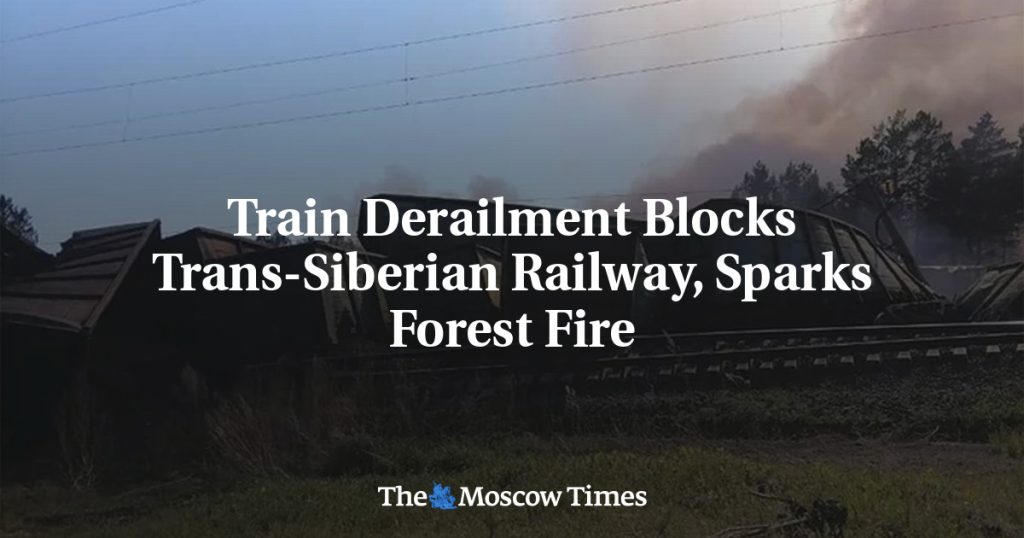A cargo train derailed along the Trans-Siberian Railway in Far East Russia’s Amur region, causing 29 cars carrying coal to crash into trees and set a nearby forest on fire. The incident occurred at 2:30 pm local time, resulting in damage to electrical lines but no injuries were reported. As a result, railway traffic was temporarily suspended along the stretch between the villages of Seletkan and Ledyanaya, approximately 170 kilometers north of Blagoveshchensk.
A video posted on social media captured the aftermath of the derailment, showing overturned train cars and a forest engulfed in smoke and flames. The local subsidiary of Russian Railways issued a statement confirming the disruption and initiating measures to address the situation. Police investigators also launched a criminal investigation into safety violations and were working to determine the cause of the derailment, without specifying if foul play was suspected.
The incident raised concerns about the safety of the Trans-Siberian Railway, one of the longest railway lines in the world spanning across Russia from Moscow to Vladivostok. The derailment highlighted potential risks associated with transporting cargo along the route, including disruptions to traffic flow, damage to infrastructure, and environmental hazards such as fires. Authorities emphasized the importance of ensuring compliance with safety regulations to prevent similar accidents in the future.
Efforts were underway to clear the tracks, repair damaged infrastructure, and contain the forest fire resulting from the derailment. Emergency response teams were deployed to the site to assess the situation, address any environmental impact, and facilitate the safe resumption of railway operations. Russian Railways and local officials worked collaboratively to coordinate response efforts and keep the public informed about developments related to the incident.
As investigations into the cause of the derailment continued, concerns were raised about the need for improved safety measures and monitoring systems along the Trans-Siberian Railway. Authorities planned to implement measures to enhance safety protocols, conduct regular inspections, and provide training for railway personnel to prevent similar incidents in the future. The incident served as a reminder of the challenges associated with maintaining a crucial transportation artery that plays a significant role in Russia’s economy and global trade networks.
Despite the temporary disruption caused by the derailment, authorities were focused on restoring normal railway operations and ensuring the safety and efficiency of cargo transportation along the Trans-Siberian Railway. The incident highlighted the importance of proactive safety measures, rapid response capabilities, and effective communication strategies in addressing emergencies along the railway network. By addressing the root causes of the derailment and implementing preventive measures, authorities aimed to enhance the resilience and reliability of the Trans-Siberian Railway for future operations.


